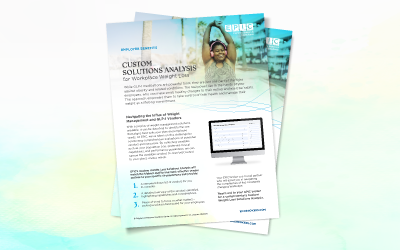Viewpoints from Craig Hasday
This year brings significant changes to the health insurance marketplace.
Amazon completed its acquisition of One Medical. The retail pharmacy capabilities gained via Amazon’s Pill Pack acquisition have bolstered Amazon’s mission to make it easier for people to find, choose, afford, and engage with virtual and traditional primary care services. In another significant move, Humana announced that it would be exiting the Employer Group Commercial Medical Products business. Humana will continue to offer Medicare Advantage, Group Medicare, Medicare Supplement, Medicare Prescription Drug Plans, Medicaid, Military, and Specialty products (Dental, Vision, Life, etc.).
Medical cost trends are rising again.
One reason employer plan inflation is higher than general inflation rates is cost-shifting from government plans (e.g. Medicare and Medicaid) to employer plans. Government plan rates are set by Federal statutes, and changes to some important rules used to determine these costs will suppress Medicare rates and shift even more costs to employer-sponsored plans. Gallup recently reported the percentage of Americans postponing medical treatment in 2022 due to cost rose 12 points in one year, to 38% – the highest in Gallup’s 22-year trend. 79% of those deferring said the treatment was for a serious condition or illness.
Original Medicare is a rules-based, fee-for-service platform. Medicare Advantage reimburses capitated payments which adjust for the health status of the plans’ enrollees. Current rules include a Medicare Advantage risk adjustment data validation (RADV) audit, which requires a plan to pay back the federal government when diagnosis codes submitted for risk adjustment are not supported by information in the medical records. Under the new rules, the Centers for Medicare & Medicaid Services (CMS) will adjust future payments based on these audits and will also extrapolate RADV results and require payment back to the insurers based on fees paid for the entire patient base.
Drug reimbursement for Medicare is also being adjusted downward.
The Inflation Reduction Act (IRA) included a multi-step negotiation process for the selected Medicare Part D drugs which do not have generic competition. CMS, which previously based reimbursement on list prices, will now accept one manufacturer counteroffer and hold one to three in-person or virtual meetings with the company before settling on a “final maximum fair price offer.” CMS also identified 27 drugs with prices rising higher than general inflation which will trigger penalties to manufacturers under a separate part of the IRA.
Provider options are changing, and costs are on the rise.
Employers and their healthcare advisors need to be highly attuned to market trends. Choose your advisor wisely.
EPIC offers these opinions for general information only. EPIC does not intend this material to be, nor may any person receiving this information construe or rely on this material as, tax or legal advice. The matters addressed in this article and any related discussions or correspondence should be reviewed and discussed with legal counsel prior to acting or relying on these materials.
WEBINAR
Benefits Curve: Insights to Action Employer Risk Webinar Series
Practical Strategies for Containing Pharmacy Costs
April 20, 2023
Related Content
Products
Compliance
Our expert Compliance team provides comprehensive consulting services and in-depth education regarding the ...
Products
Communications & Engagement
Our Communications & Engagement team develops effective campaigns that enhance workforce awareness and ...
Products
Wellbeing & Health Management
Our Wellbeing and Health Management consultants help you create a strategy around population health ...



